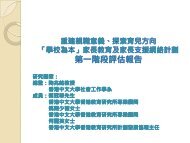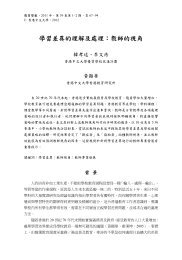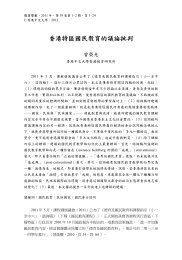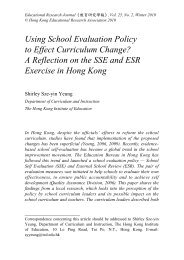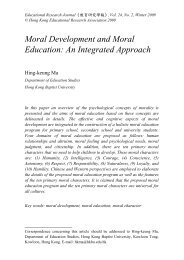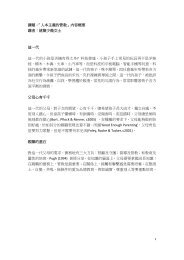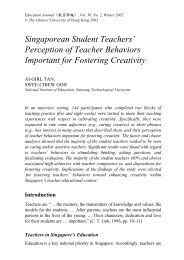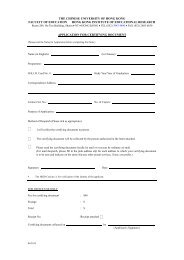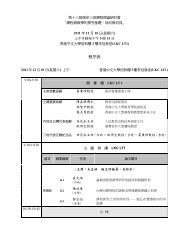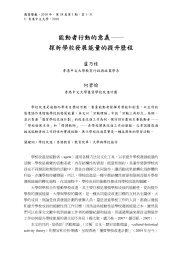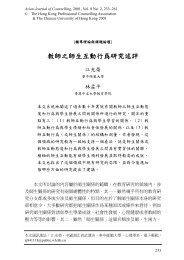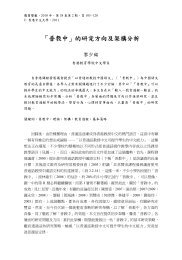Filial Therapy as a Cross-Cultural Family Intervention - The Chinese ...
Filial Therapy as a Cross-Cultural Family Intervention - The Chinese ...
Filial Therapy as a Cross-Cultural Family Intervention - The Chinese ...
You also want an ePaper? Increase the reach of your titles
YUMPU automatically turns print PDFs into web optimized ePapers that Google loves.
Daniel S. Sweeney, Catherine Skurja<br />
‧ Do track behavior. Tracking behavior simply involves verbally<br />
reflecting the play behaviors of the child during the play times while<br />
expressing interest and investment in the child.<br />
‧ Do reflect the child’s feelings. Through reflection of feelings, the<br />
parent acknowledges and affirms the child’s emotions. This creates a<br />
safe and caring atmosphere for the child to play out internalized and<br />
externalized behaviors tied to emotional turmoil.<br />
‧ Do set limits. Children are frequently desperate for an environment<br />
marked by consistent boundaries. Parents need to learn limit-setting<br />
skills. Landreth’s (2002) ACT limit-setting model is recommended.<br />
‧ Do affirm the child’s power and effort. Encouragement involves<br />
acknowledging the child’s power and effort. Children, critically<br />
needing to know whether they can succeed in life, need<br />
encouragement.<br />
‧ Do join in the play <strong>as</strong> a follower. Although the play sessions are “child-<br />
centered,” parents need to be encouraged to actively join their children<br />
in the play, at the request and lead of the children.<br />
‧ Do be verbally active. Just <strong>as</strong> silence communicates a lack of interest,<br />
Session 4<br />
being verbally active lets the child know that the parent is not only<br />
interested but also dedicated to building the parent-child relationship.<br />
All parents give reports of their first play sessions, with the play therapist<br />
supervising and the group giving feedback. <strong>The</strong> focus is on the parents’<br />
feelings about the experience. When responding to the parents, the therapist<br />
models the reflection of feelings that the parents must focus on during the<br />
play times. <strong>The</strong> group views the videotape(s) of the parent-child play<br />
time(s) and gives feedback. It is important that the therapist gives considerable<br />
positive feedback during this time, <strong>as</strong> all of the parents will be somewhat<br />
reluctant to be viewed on videotape. One or two additional parents are<br />
scheduled to videotape their next session for review the following week.<br />
Every parent will schedule at le<strong>as</strong>t one play session to be videotaped and<br />
198



